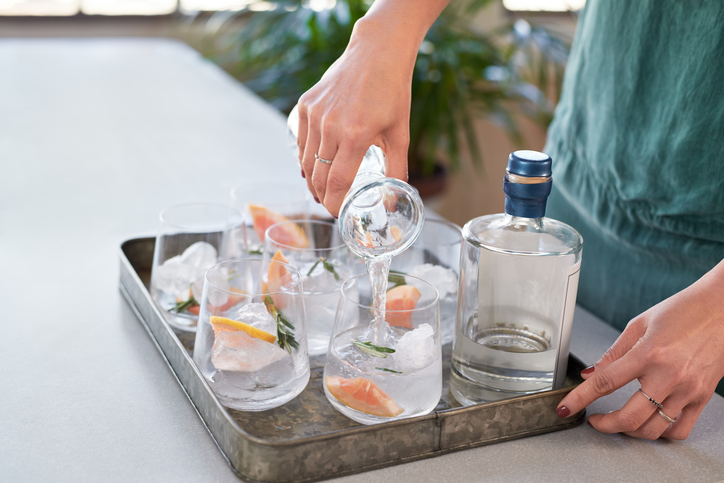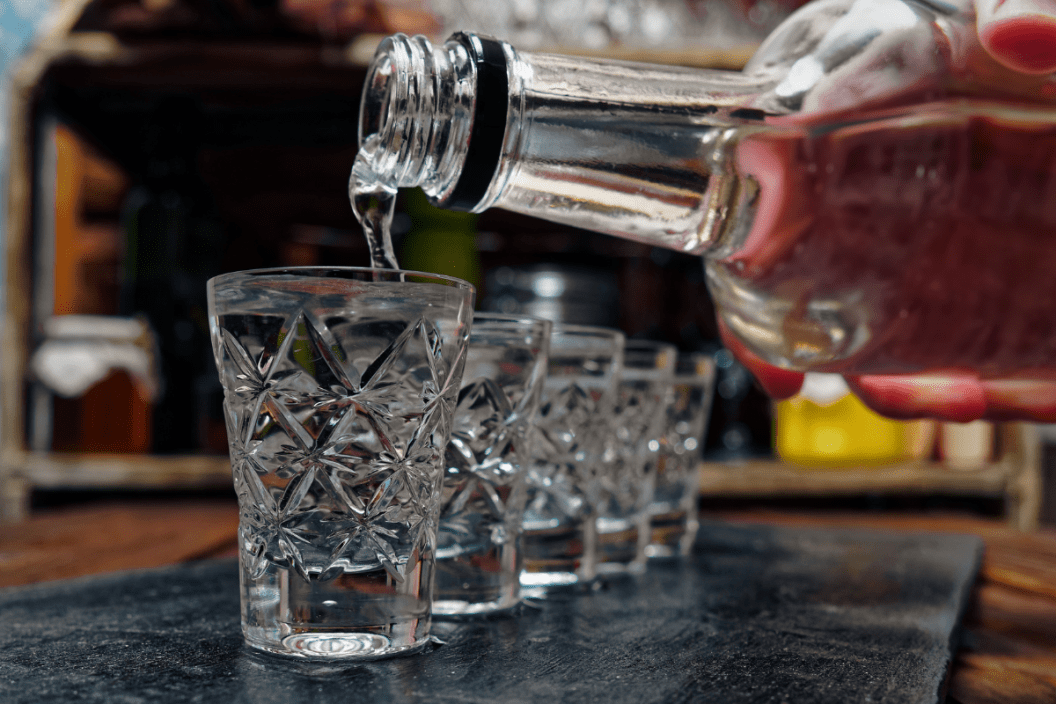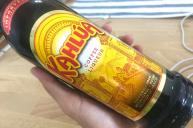If you're a cocktail aficionado, you probably have a bottle of most of the base liquors on hand: gin, rum, whiskey, vodka, tequila, and maybe brandy. These liquors are the foundation of most of our favorite cocktails for backyard BBQs or lazy Sundays, but you may find that you use some more quickly than the others. If you end up with an old, dusty bottle of vodka in the back of your liquor cabinet, you may be wondering if it's still good to drink. Does vodka expire after it's opened, and should it be stored in the freezer to keep it at its prime?
Videos by Wide Open Country
When Does Vodka Expire?
According to Healthline, liquor—including gin, vodka, whiskey, tequila, and rum—is shelf stable, and it won't expire as long as the bottle is unopened. At 80 proof, vodka is 40% alcohol by volume, which is a high enough concentration to keep bacteria from spoiling its contents. However, once it's opened, vodka should be consumed within eight months to a year for best flavor. While the liquor itself won't expire, opening the bottle can cause the liquid to oxidize, changing its flavor and adding off-tastes to the bottle.
Is it Safe to Drink Old Vodka?
It's unlikely that drinking old vodka would make you sick. It might taste old or stale, but microbes cannot grow in vodka because of its high concentration of alcohol. Homemade liqueurs made with vodka or fruit infusions likely lower the alcohol content, changing the vodka's shelf life. They should be good for six months to a year, depending on the recipe. If you notice crystallized sugar in the bottle, if the contents curdle, or the liqueur changes colors, it's best to throw the liqueur away to avoid getting sick.
How Do You Store Vodka

Getty Images
Unopened bottles of vodka will last for decades, but how you store them does affect the flavor of the bottle's contents. Store unopened vodka upright in a cool, dark place. Don't store it in the freezer at this time, as extended exposure to extreme cold can affect the aroma. Heat and light also affect the vodka's flavor, even if the bottle is tightly sealed.
Once opened, many people store vodka in the freezer. It has a high enough ethanol content, so it won't freeze, and the freezer keeps it cold enough to make a cocktail at a moment's notice. However, there's a better way to store opened vodka. The freezer mutes the vodka's flavor, which is fine for a cheap bottle, but you'll be better off storing an expensive bottle in the refrigerator. If you're not enjoying vodka neat, a cool, dark place at room temperature will do just fine (like a liquor cabinet or a pantry).
Whether the bottle is open or not, it's important to store vodka upright instead of on its side, which puts the lid in contact with the liquid inside, leading to corrosion of the cap.




